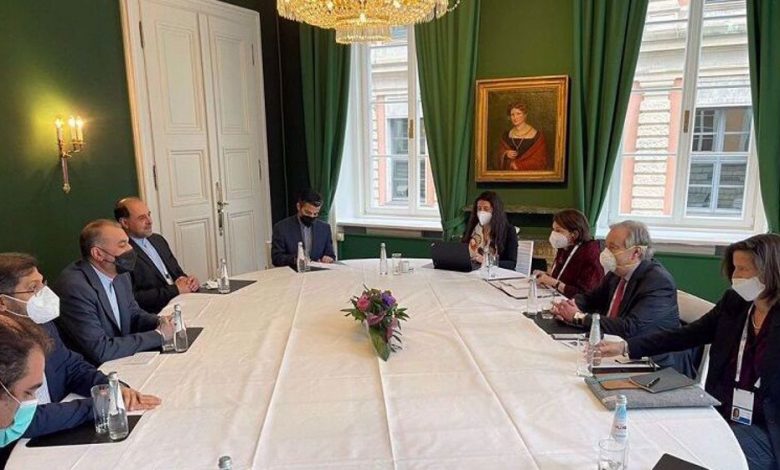Iran FM warns of Afghan refugee crisis, Yemen disaster in meeting with UN chief
Iranian Foreign Minister Hossein Amir-Abdollahian has warned of the burden of a new wave of refugees from Afghanistan in the aftermath of the Taliban takeover of the Central Asian country and also stated that the ongoing Yemen crisis has reached a critical point that requires concerted international efforts.

Amir-Abdollahian made the remarks in a meeting with United Nations Secretary-General António Guterres on the sidelines of the 58th Munich Security Conference (MSC) in southern Germany on Friday evening.
The Iranian foreign minister stressed the need for the continuation of humanitarian assistance to the Afghan people and the formation of an inclusive government in Afghanistan with the involvement of all ethno-political groups in order to effectively address the lingering problems in the country.
He pointed to the continuing influx of refugees from Afghanistan, warning that the trend could result in the spread of terrorism as well as illicit drug production and trafficking, which would subsequently undermine regional and international stability and security.
The top Iranian diplomat also called for greater assistance by the United Nations High Commissioner for Refugees (UNHCR) to Afghanistan’s neighboring states, including Iran.
Afghanistan has been in the grip of a major humanitarian disaster, worsened by the freezing of assets worth billions of dollars by the United States and its allies.
Since last August, international aid, which financed nearly 80 percent of the war-ravaged country’s budget, has been suspended and nearly $9.5 billion in assets belonging to Afghanistan’s central bank have been frozen by Washington, contributing to the pitiable plight of millions of Afghans.
This is while unemployment has skyrocketed in the country and civil servants’ salaries have not been paid for months, as banks are out of cash and the government is grappling with a dearth of funds.
Amid the rapidly deteriorating humanitarian situation, hunger now threatens 23 million Afghans, or 55 percent of the total population, according to the UN.
Amir-Abdollahian also pointed to the ongoing Yemen conflict, saying the crisis has reached a “critical point.”
“Efforts should be increased in order to reach a political solution to the [Yemen] conflict and prevent the deterioration of the humanitarian catastrophe there,” he added.
Saudi Arabia and a number of its regional allies, backed by the United States and European powers, launched the war on Yemen in March 2015, with the goal of bringing the government of former Yemeni president Abd Rabbuh Mansour Hadi back to power and crushing the Ansarullah resistance movement.
The war has left hundreds of thousands of Yemenis dead and displaced millions more. It has also destroyed Yemen’s infrastructure and spread famine and infectious diseases there.
Despite Saudi Arabia’s incessant bombardment of the impoverished country, the Yemeni armed forces have gradually grown stronger, leaving Riyadh and its allies, most notably the United Arab Emirates, bogged down in the country.
For his part, Guterres appreciated Iran’s efforts as to the plight of Afghan refugees and stressed the need for increased global support and assistance to Iran in this regard.
The UN chief noted that the international community needs to support and assist the Afghan economy and prevent the financial crisis and economic collapse in the country as it will lead to dire consequences for regional and international stability and security.
Guterres also warned of the continuation of the humanitarian catastrophe in Yemen and stated that all involved parties and the international community must join forces in order to work out a political solution to the crisis in the Arab country.







